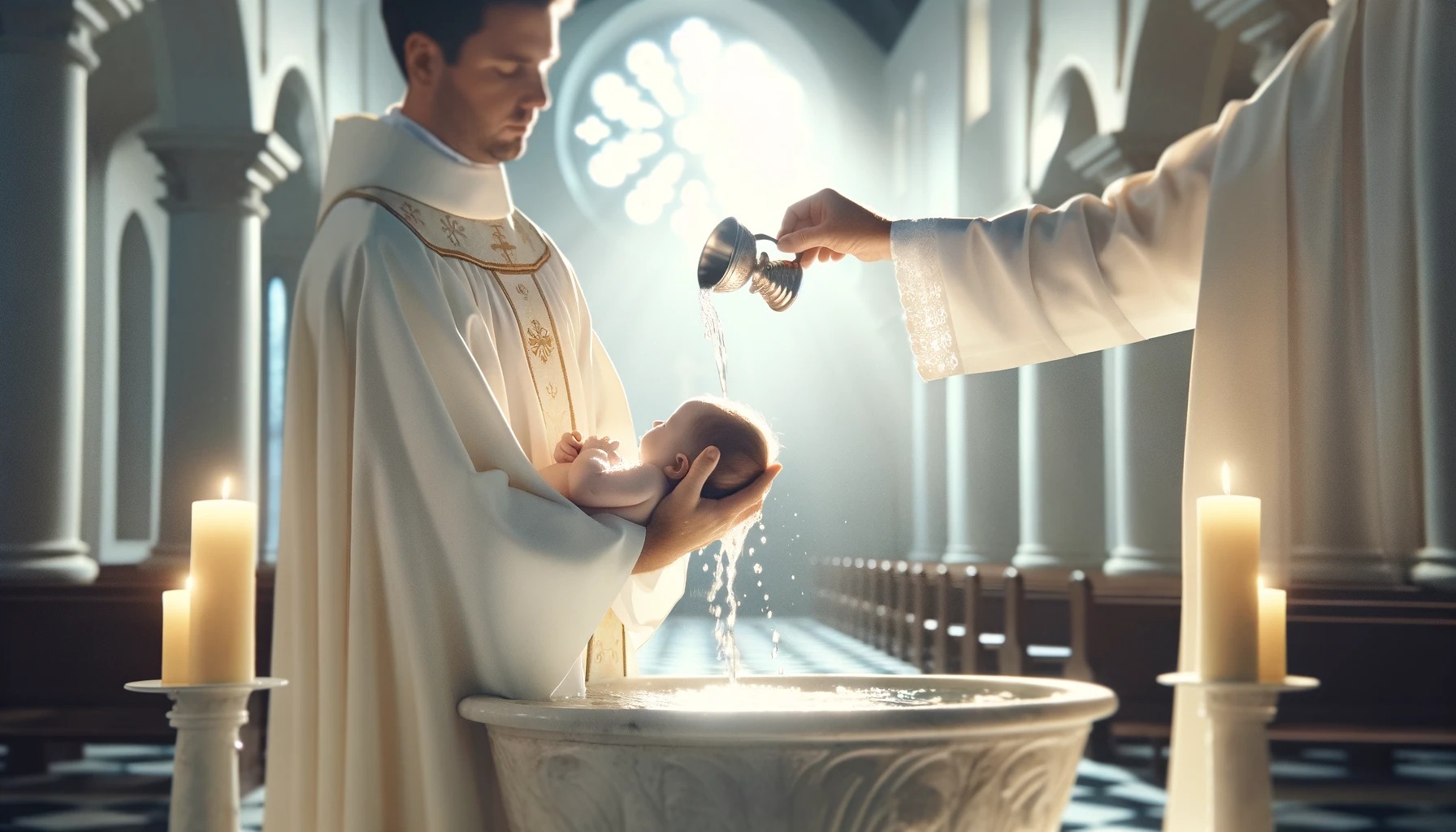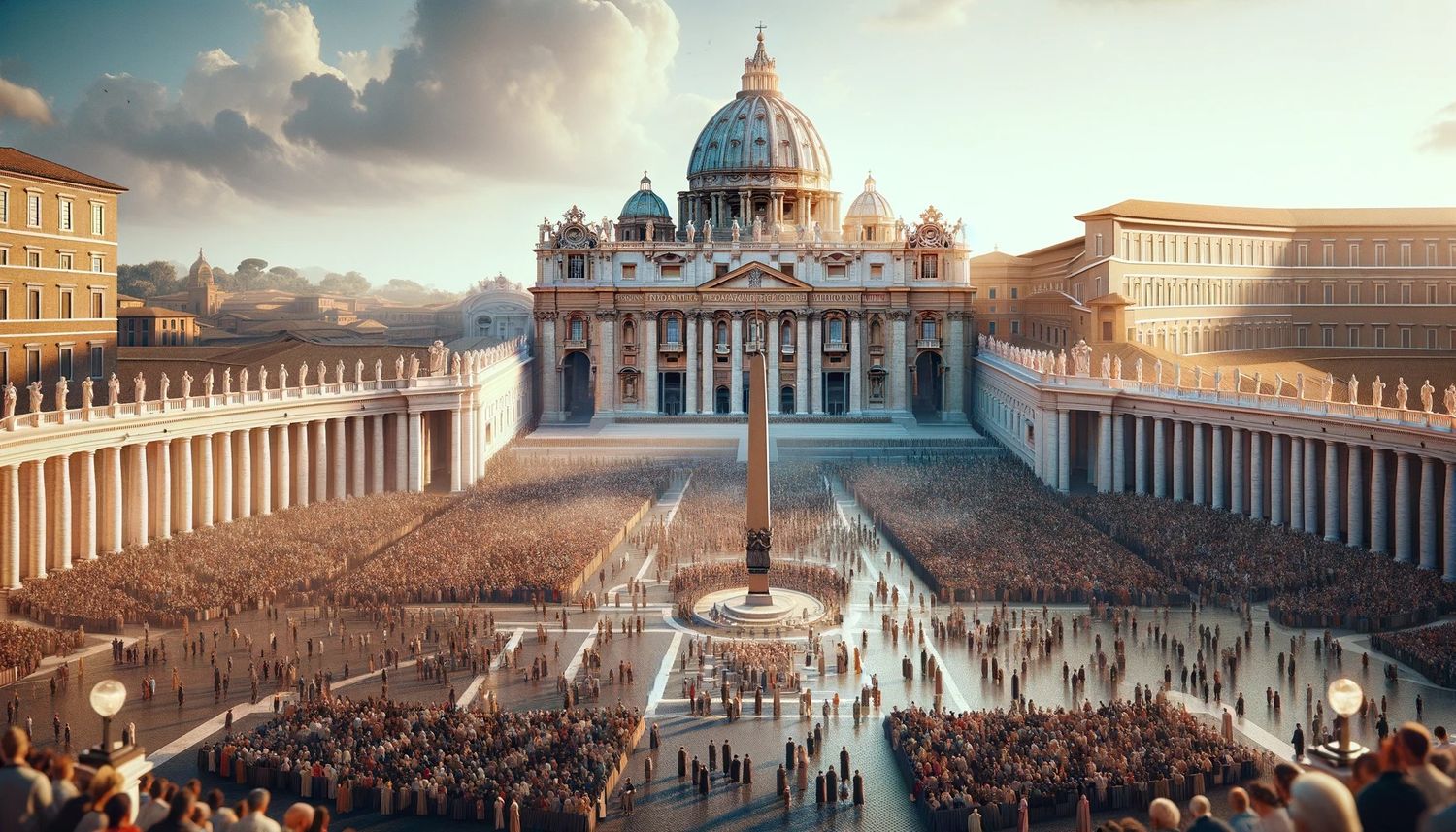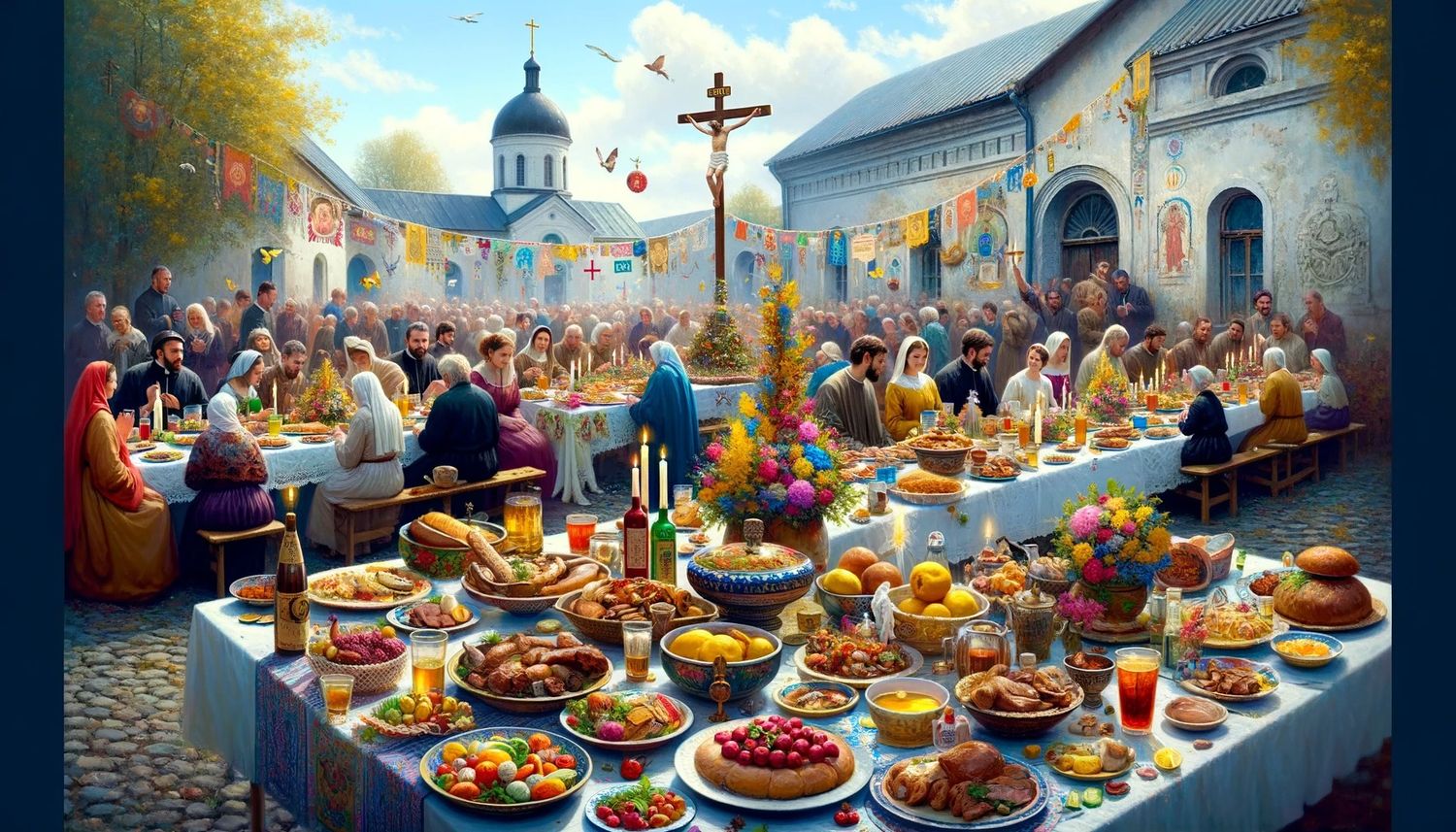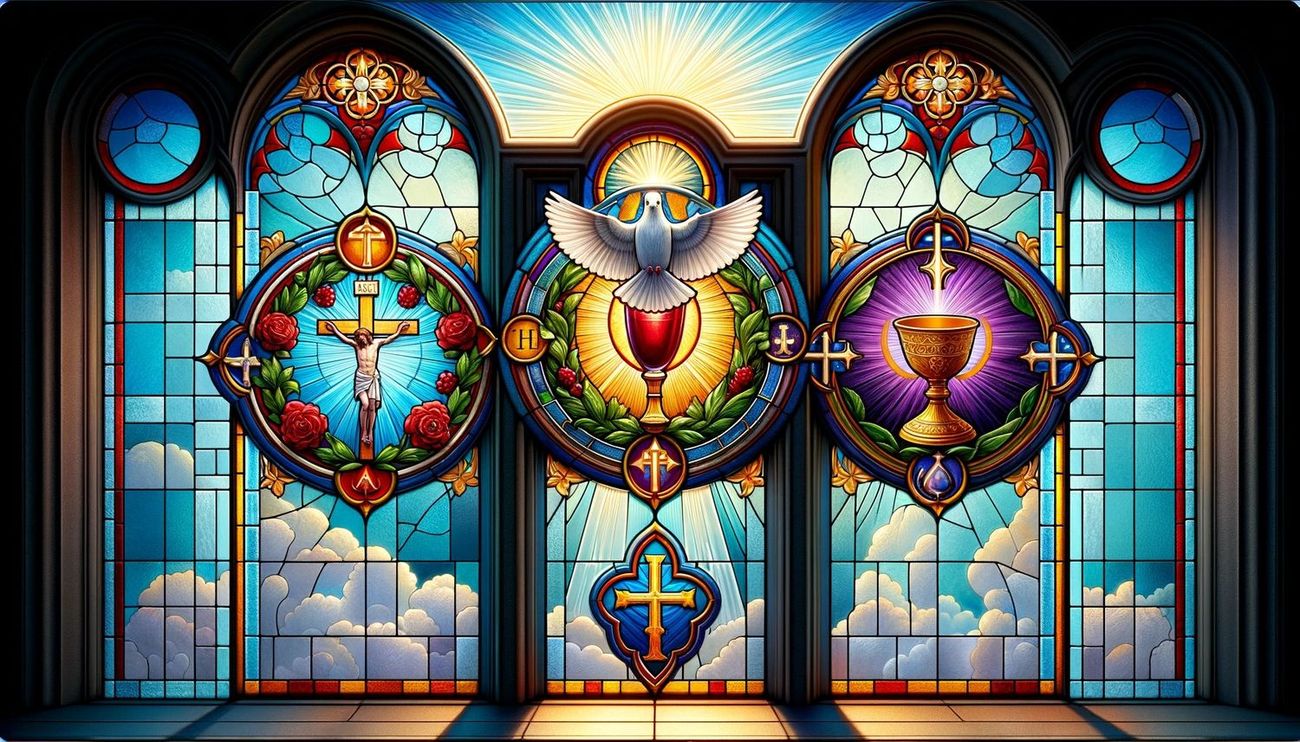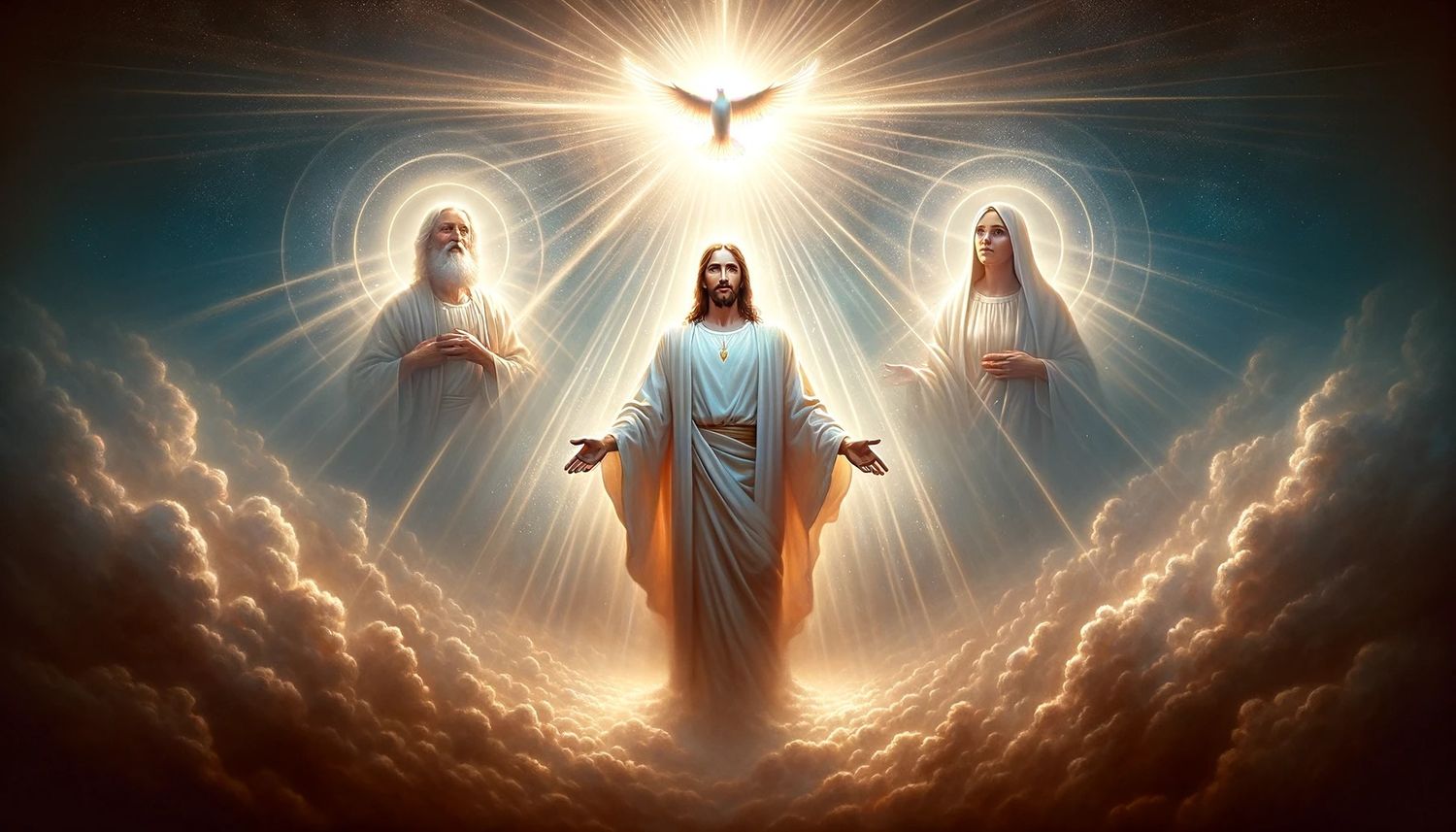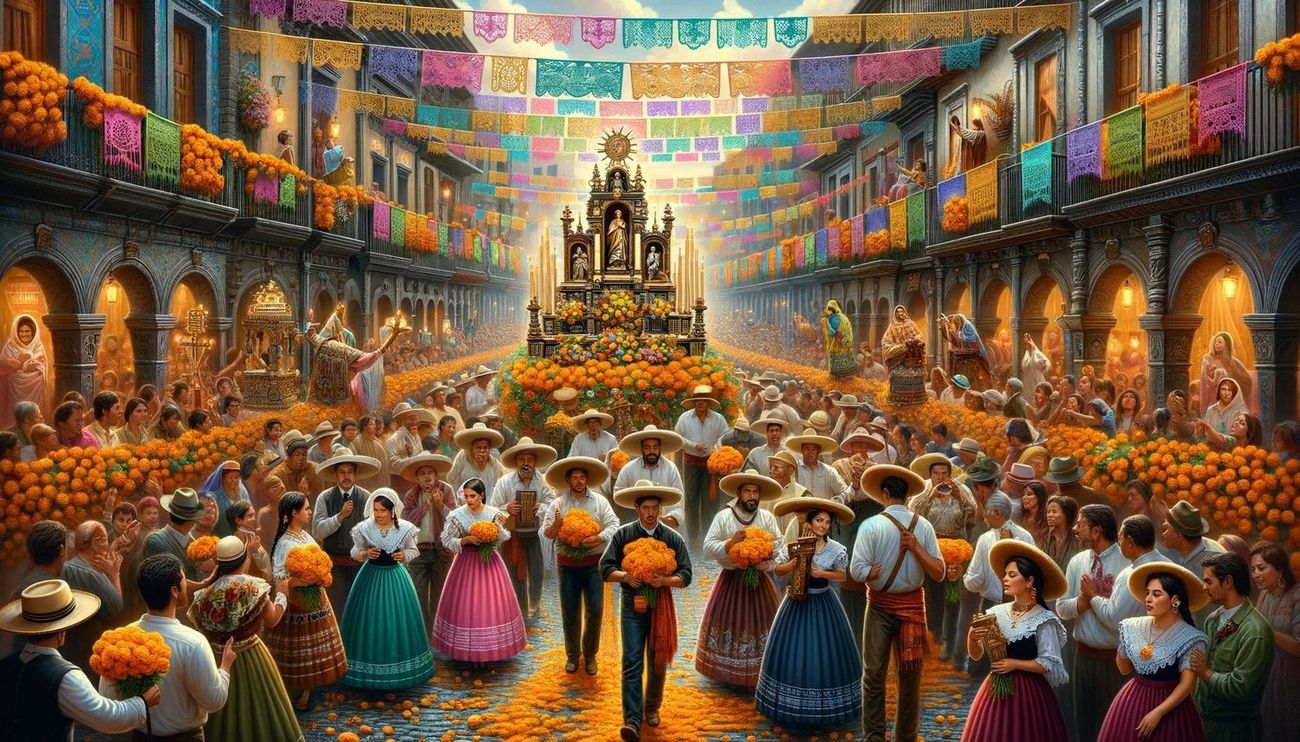Home>Theology and Spirituality>What Is The Function Of An Indulgence In Catholicism?


Theology and Spirituality
What Is The Function Of An Indulgence In Catholicism?
Published: February 17, 2024
Peter Smith, Editorial Director at Christian.net, combines deep insights into faith, politics, and culture to lead content creation that resonates widely. Awarded for his contributions to religious discourse, he previously headed a major organization for religious communicators, enhancing dialogue on faith's societal impacts.
Discover the significance of indulgences in Catholic theology and spirituality. Learn about their function and importance in the Catholic faith.
(Many of the links in this article redirect to a specific reviewed product. Your purchase of these products through affiliate links helps to generate commission for Christian.net, at no extra cost. Learn more)
Table of Contents
Introduction
Indulgences have been a significant aspect of Catholicism for centuries, evoking both fervent devotion and intense controversy. The concept of indulgences has played a pivotal role in shaping the beliefs and practices of the Catholic Church, influencing the spiritual lives of its adherents. Understanding the function of indulgences within the context of Catholic theology is essential for comprehending their historical significance and contemporary relevance.
The notion of indulgences has sparked profound theological debates and historical events, such as the Protestant Reformation in the 16th century. This contentious issue has left an indelible mark on the collective consciousness of Christianity, underscoring the enduring impact of indulgences on religious thought and practice.
Delving into the historical background and theological underpinnings of indulgences illuminates their multifaceted nature and sheds light on their role in the spiritual life of Catholics. Moreover, exploring the purpose and function of indulgences within the framework of Catholicism unveils their profound significance in the pursuit of spiritual purification and redemption.
As we embark on this exploration of indulgences in Catholicism, we will navigate through the annals of history, traverse the theological landscape, and unravel the complexities surrounding this intriguing aspect of religious tradition. By delving into the controversy and modern-day relevance of indulgences, we will gain a comprehensive understanding of their enduring impact on the Catholic faith.
Join me on this enlightening journey as we unravel the enigmatic function of indulgences in Catholicism, delving into their historical, theological, and contemporary dimensions.
Historical background of indulgences in Catholicism
The historical origins of indulgences in Catholicism can be traced back to the early centuries of the Church. The concept of indulgences evolved from the practice of public penance in the early Christian community. During this period, individuals who had committed serious sins were required to undergo a period of public penance as a means of seeking reconciliation with the Church. This penitential practice often involved acts of fasting, prayer, and almsgiving, and could last for several years.
As the Church's understanding of sin, repentance, and forgiveness developed, the concept of indulgences began to take shape. By the Middle Ages, the Church had formulated the belief in the treasury of merit, which held that the good deeds and merits of Christ, the Virgin Mary, and the saints constituted a spiritual treasury that could be accessed for the remission of temporal punishment due to sin.
The first formalized indulgences can be traced to the pontificate of Pope Urban II in the 11th century. Indulgences were initially granted to pilgrims who visited holy sites or participated in crusades as a way to encourage piety and devotion. Over time, the granting of indulgences expanded to include a wide range of pious acts, such as reciting prayers, making charitable donations, or performing acts of mercy.
The practice of indulgences reached its zenith during the High Middle Ages, particularly with the construction of grand cathedrals and the promotion of pilgrimage sites. The Church utilized indulgences as a means of raising funds for these ambitious building projects, leading to widespread criticism and abuse of the indulgence system.
The proliferation of indulgences and the abuses associated with their sale became a focal point of contention during the 16th century, ultimately contributing to the Protestant Reformation. Martin Luther's Ninety-Five Theses, which he famously nailed to the door of the Castle Church in Wittenberg in 1517, condemned the sale of indulgences and sparked a seismic shift in the religious landscape of Europe.
The Council of Trent, convened by the Catholic Church in response to the Protestant Reformation, sought to address the abuses surrounding indulgences and reaffirm their legitimate spiritual value. The Council clarified the theological basis of indulgences, emphasizing their connection to the sacrament of penance and their role in fostering genuine contrition and spiritual renewal.
The historical trajectory of indulgences in Catholicism reflects their evolution from early Christian penitential practices to a complex system of spiritual remission and reconciliation. This historical background provides a foundational understanding of the development and significance of indulgences within the rich tapestry of Catholic tradition.
The theological concept of indulgences
The theological concept of indulgences in Catholicism is rooted in the Church's understanding of sin, repentance, and the redemptive work of Christ. At its core, the concept of indulgences is intricately linked to the sacrament of penance and the Church's teaching on the effects of sin.
In Catholic theology, sin is understood not only as a personal transgression but also as a disruption of the divine order and harmony established by God. Sin incurs both eternal punishment, which is forgiven through the sacrament of confession, and temporal punishment, which remains even after the sin is forgiven. This temporal punishment is seen as a consequence of sin that affects the sinner's soul and requires purification and healing.
Indulgences are viewed as a means of remitting this temporal punishment, allowing the individual to be reconciled with God and the Church. The theological foundation of indulgences is grounded in the belief in the communion of saints and the treasury of merit. According to this belief, the good deeds, merits, and sufferings of Christ, the Virgin Mary, and the saints form a spiritual treasury that is accessible to the Church.
When an indulgence is granted, it is believed that the merits of Christ and the saints are applied to the individual, thereby lessening or removing the temporal punishment due to sin. This act of remission is not a pardon for the sin itself, which is addressed through the sacrament of penance, but rather a means of healing and restoring the soul to a state of grace.
The theological concept of indulgences underscores the Church's understanding of God's mercy and the transformative power of grace. It emphasizes the communal nature of the Christian faith, highlighting the interconnectedness of believers and the spiritual solidarity that exists within the Body of Christ.
Furthermore, indulgences are seen as an invitation to deepen one's spiritual life and engage in acts of piety, charity, and devotion. They serve as a catalyst for personal conversion and a reminder of the ongoing process of spiritual growth and renewal.
Understanding the theological concept of indulgences provides insight into the Catholic Church's perspective on sin, redemption, and the transformative power of God's grace. It illuminates the profound connection between the individual believer and the broader communion of saints, underscoring the rich theological tapestry that informs the practice of indulgences in Catholicism.
The purpose and function of indulgences in Catholicism
The purpose and function of indulgences in Catholicism are deeply intertwined with the spiritual welfare of believers and the Church's understanding of sin, repentance, and grace. At the heart of their function is the belief in the redemptive power of Christ's sacrifice and the intercessory role of the saints in the life of the faithful.
1. Remission of Temporal Punishment
Indulgences serve as a means of remitting the temporal punishment due to sin, offering believers the opportunity for spiritual healing and renewal. By engaging in acts of piety, charity, or devotion for which indulgences are granted, individuals can alleviate the temporal consequences of their sins, fostering a deeper sense of reconciliation with God and the Church.
Read more: What Is Confirmation In Catholicism
2. Encouragement of Spiritual Practices
The granting of indulgences encourages believers to engage in spiritual practices that deepen their faith and foster a life of holiness. Whether through prayer, pilgrimage, or works of mercy, the pursuit of indulgences prompts individuals to embrace acts of piety and devotion, nurturing their spiritual growth and strengthening their bond with the divine.
3. Communion with the Communion of Saints
Indulgences reinforce the communion of saints, emphasizing the interconnectedness of believers across time and space. By seeking indulgences, individuals participate in the spiritual merits of Christ, the Virgin Mary, and the saints, affirming their solidarity with the broader Christian community and drawing inspiration from the exemplary lives of the saints.
4. Cultivation of Interior Conversion
The function of indulgences extends beyond external acts of piety to the cultivation of interior conversion and contrition. Through the pursuit of indulgences, believers are invited to reflect on their spiritual journey, seek genuine repentance, and embrace a transformative renewal of heart and mind, thereby deepening their relationship with God and the Church.
5. Expression of God's Mercy and Grace
Indulgences embody the Church's proclamation of God's boundless mercy and grace, offering believers a tangible expression of divine compassion and forgiveness. They serve as a visible sign of the Church's role in mediating God's mercy to the faithful, underscoring the transformative power of grace in the lives of believers.
In essence, the purpose and function of indulgences in Catholicism encompass a multifaceted tapestry of spiritual significance, encompassing the remission of temporal punishment, the encouragement of spiritual practices, communion with the communion of saints, the cultivation of interior conversion, and the expression of God's mercy and grace. These aspects collectively contribute to the rich spiritual landscape of Catholic tradition, shaping the lived experience of believers and fostering a deeper engagement with the mysteries of faith.
Read more: What Is The Symbol Of Catholicism
The controversy surrounding indulgences in the Catholic Church
The controversy surrounding indulgences in the Catholic Church has been a source of profound theological debate and historical upheaval. At the heart of this controversy lies the complex interplay of spiritual, economic, and ethical considerations that have shaped the perception and practice of indulgences throughout the centuries.
During the medieval period, the widespread granting and sale of indulgences gave rise to significant criticism and scrutiny. The perception that indulgences could be obtained through monetary contributions led to accusations of spiritual exploitation and moral laxity. This commercialization of spiritual benefits, particularly in the context of funding grand building projects such as cathedrals, ignited public outcry and fueled discontent among the faithful.
The indulgence controversy reached its zenith with the advent of the Protestant Reformation in the 16th century. Martin Luther, a German monk and theologian, vehemently denounced the sale of indulgences in his Ninety-Five Theses, igniting a firestorm of dissent that reverberated across Europe. Luther's impassioned critique of indulgences as a means of securing salvation through financial transactions struck at the core of the Church's authority and sparked a seismic rupture within Western Christianity.
The controversy surrounding indulgences became a focal point of theological discourse and political upheaval, culminating in the fracturing of the Church and the emergence of Protestant denominations. The Council of Trent, convened in response to the Protestant Reformation, sought to address the abuses associated with indulgences while reaffirming their legitimate spiritual value within the context of Catholic doctrine.
The historical controversy surrounding indulgences underscores the ethical and theological complexities inherent in their practice. It serves as a poignant reminder of the delicate balance between spiritual devotion and institutional integrity, shedding light on the enduring impact of indulgences on the religious landscape of Western Christianity.
The controversy surrounding indulgences in the Catholic Church has left an indelible mark on the collective consciousness of Christianity, underscoring the enduring impact of indulgences on religious thought and practice.
The role of indulgences in modern Catholicism
In modern Catholicism, the role of indulgences continues to be a significant aspect of spiritual practice and devotion. While the controversies and abuses associated with indulgences have been addressed, their theological and pastoral significance endures within the contemporary framework of the Catholic Church.
One of the key roles of indulgences in modern Catholicism is their function as a catalyst for spiritual renewal and growth. The pursuit of indulgences prompts believers to engage in acts of piety, charity, and devotion, fostering a deepened sense of spiritual discipline and commitment to the faith. By participating in activities for which indulgences are granted, such as praying the Rosary, visiting sacred sites, or performing works of mercy, individuals are encouraged to cultivate a vibrant spiritual life and embrace the transformative power of grace.
Moreover, indulgences serve as a tangible expression of God's boundless mercy and compassion within the contemporary Catholic ethos. In a world marked by spiritual longing and existential yearning, the granting of indulgences reaffirms the Church's role as a conduit of divine grace, offering believers a pathway to reconciliation, healing, and spiritual wholeness. This aspect of indulgences resonates deeply with the faithful, providing a source of comfort and hope in the face of life's challenges and uncertainties.
In addition, the role of indulgences in modern Catholicism extends to their function as a means of fostering communal solidarity and interconnectedness among believers. The pursuit of indulgences underscores the communion of saints, emphasizing the spiritual bond that unites the faithful across time and space. By participating in the spiritual merits of Christ, the Virgin Mary, and the saints, believers are reminded of their shared journey of faith and the enduring legacy of Christian witness throughout history.
Furthermore, indulgences play a role in promoting a culture of repentance, reconciliation, and ongoing conversion within the contemporary Catholic community. The pursuit of indulgences invites individuals to reflect on their spiritual journey, seek genuine contrition, and embrace a renewed commitment to living out the Gospel values in their daily lives. This emphasis on interior conversion and moral renewal underscores the relevance of indulgences in addressing the perennial human need for spiritual growth and ethical transformation.
In essence, the role of indulgences in modern Catholicism encompasses their function as a catalyst for spiritual renewal, an expression of divine mercy, a source of communal solidarity, and a means of fostering ongoing conversion and moral renewal. Within the dynamic tapestry of contemporary Catholic spirituality, indulgences continue to occupy a meaningful place, offering believers a pathway to deeper communion with God and the Church.
Conclusion
In conclusion, the function of indulgences in Catholicism transcends mere historical and theological significance, permeating the spiritual lives of believers and shaping the ethos of the Church. The historical background of indulgences reveals their evolution from early Christian penitential practices to a complex system of spiritual remission and reconciliation. The theological concept of indulgences underscores the Church's understanding of sin, repentance, and the redemptive work of Christ, emphasizing the communal nature of the Christian faith and the transformative power of grace.
The purpose and function of indulgences in Catholicism encompass a multifaceted tapestry of spiritual significance, including the remission of temporal punishment, the encouragement of spiritual practices, communion with the communion of saints, the cultivation of interior conversion, and the expression of God's mercy and grace. These aspects collectively contribute to the rich spiritual landscape of Catholic tradition, shaping the lived experience of believers and fostering a deeper engagement with the mysteries of faith.
The controversy surrounding indulgences in the Catholic Church has been a source of profound theological debate and historical upheaval, underscoring the delicate balance between spiritual devotion and institutional integrity. While the controversies and abuses associated with indulgences have been addressed, their theological and pastoral significance endures within the contemporary framework of the Catholic Church.
In modern Catholicism, the role of indulgences continues to be a significant aspect of spiritual practice and devotion, serving as a catalyst for spiritual renewal, an expression of divine mercy, a source of communal solidarity, and a means of fostering ongoing conversion and moral renewal. Within the dynamic tapestry of contemporary Catholic spirituality, indulgences continue to occupy a meaningful place, offering believers a pathway to deeper communion with God and the Church.
Ultimately, the function of indulgences in Catholicism reflects the enduring quest for spiritual purification, reconciliation, and growth, embodying the timeless aspiration for divine grace and the transformative power of redemption. As believers navigate the complexities of the human condition, the function of indulgences stands as a testament to the enduring hope and profound mercy that permeate the heart of the Catholic faith.


